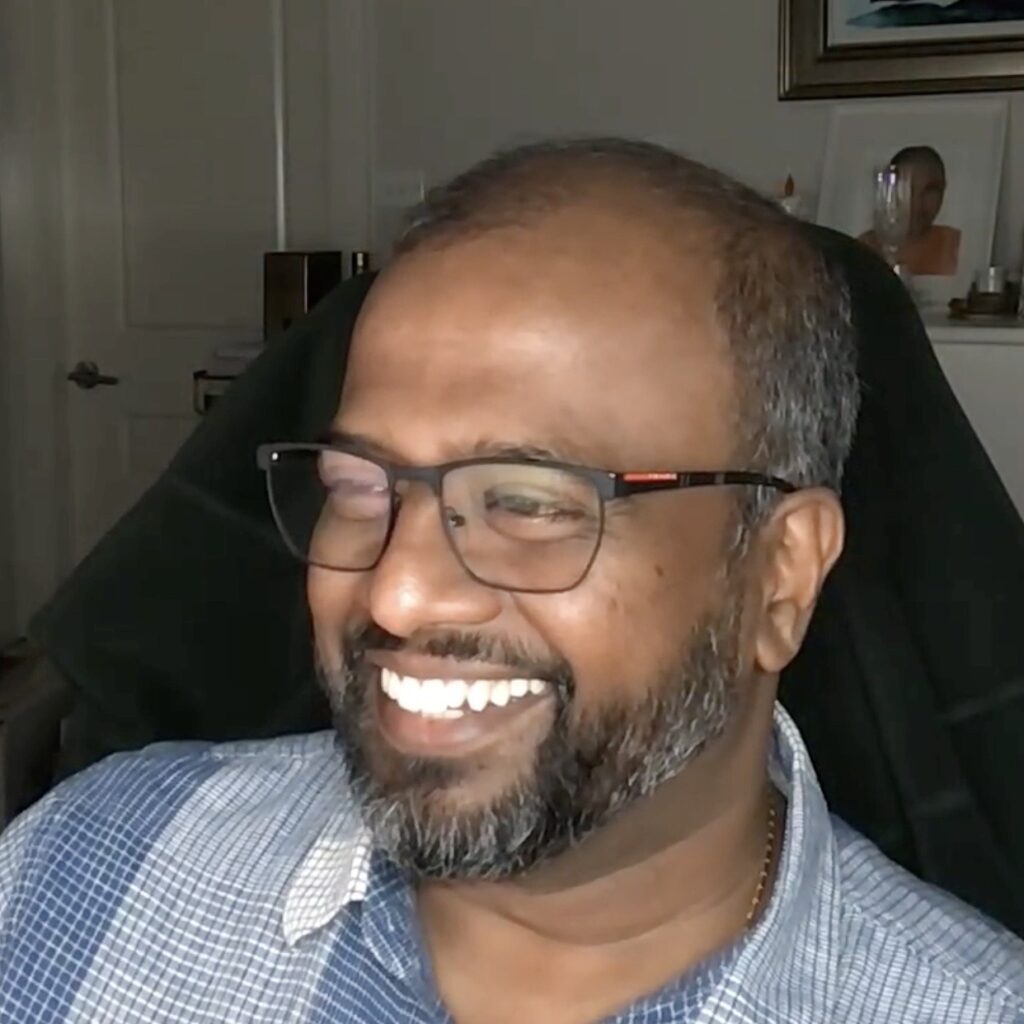Q&A with Vijay Manivel

Dr Vijay Manivel is a senior emergency physician based in Western/Northwest Sydney, NSW. He is an active researcher in the field of emergency ultrasound, with a particular interest in ultrasonography during resuscitation, and novel methods to improve quality.
At SSEM22, he’ll be facilitating the Smart Echo workshop.
Questions and Answers
Should every EM clinician do ultrasound?
Yes. Without doubt. It should be part of our training. Just like how you learn to do certain examination skills using tools like stethoscopes and fundoscopy. Ultrasound has been alienated from us by radiology for a long time. It’s high time for it to be integrated into clinical medicine, rather than using it as a supplementary tool.
Why are some EM clinicians anti-ultrasound?
They aren’t anti-ultrasound. They are ignorant of what ultrasound’s utility is. Because they haven’t learnt it. I hadn’t learnt it when I studied medicine. It just takes a small mindset change to turn around and learn new techniques and technologies and adapt our old school clinical examination skills. You need that attitude, that adaptability, to embrace new technology. Actually – it’s not that new. It’s been around since Godzilla times. But it’s just been hidden in a dark room which we never had access to.
What is your favourite ultrasound trick?
Should I say that here? I wanted to write an article about it.
So you’ve got something top secret that you can’t tell us?
At the moment. Yes.
Okay, what’s your second-favourite ultrasound trick?
A simple thing which we should be doing… peripheral cannulas, don’t use gel. Use sterile water. It is much easier to dry off. Very critical, when you are doing a paediatric cannula. You’re not having to wipe off the gel and losing the cannula. I’ve had bad experiences with that.
Doesn’t that make it harder to slide the probe?
Put more water on it.
How many of your registrars are credentialed in ultrasound?
Including CCPUs? All of them. We’re talking about advanced trainees? All. Ten, twelve. Two have just turned advanced trainee – they’ll be doing an ultrasound term in August, and then they’ll be credentialed too.
What was your favourite toy? As a child.
A car. A remote controlled car. A Plymouth, red coloured. I’ve always been fascinated with vehicles, not necessarily sporty, more vintage style. I like V8 engines. I like the roar of a V8.
Do you drive a V8 then?
I did for a long time. I was one of the first batch in Australia to have a Mustang. Eventually I had to give it up. My daughter got a hatchback. There wasn’t space in the garage. So I got a motorbike.
What’s the most surprising thing you’ve ever found on ultrasound?
Use two ultrasound machines on a patient at the same time. And try to make sure that the soundwaves, inside the body, intersect with each other. Suddenly a disturbance happens on both screens. It’s like electrical lines coming in. Now put colour doppler on it. It’s almost like disco lights. We wanted to call it Sono-Rap. You could put rap music to it.
What’s your best ever ultrasound save?
A case of suspected aortic dissection. He was crashing, he was hypotensive… go to resus, we need a CT aortogram, can you have a look to see if he has a dissection. This guy was almost peri-arrest. We put the probe on. All we could see was this huge RV with a lot of clots floating around. Aortic root was alright. Thrombolysed him. We got the next image in 20 minutes time. The clot burden was completely gone. He was talking and laughing.
Is there any part of a human being that you haven’t scanned?
Heaps. There are lots of areas that I don’t know how to scan properly. There are things that I want to learn. The main thing is cerebral arteries. Doppler of the brain.
Brain? How does that even work?
You can still go through bone. Just use a very low frequency transducer. Take a cardiac probe. Put it in your temple. You can see the middle cerebral artery.
Are hand-held ultrasounds of any use?
Yes. They’ve definitely got a role in certain areas. Out of hospital. Very big value in retrievals, space poor areas, like choppers. And because of the technology improving, I wouldn’t be surprised if we soon didn’t need bulky machines in the ED. Technology is moving very fast. it’s coming.
What’s the worst thing you have ever eaten?
I come from an Indian background. Most of the food is cooked and spiced up so you can’t even feel the taste of that particular meat or fish. All you feel is just the bloody spice. So when I moved to Australia, that was the first time I got exposed to fresh oysters. Not a big thing in India. Instantaneous nausea. That haunted the whole dinner for me.
Vijay Manivel will be facilitating at the Spring Seminar on Emergency Medicine, Noosa, 18-21 October 2022. He won’t be having oysters at the reception, though.
Spring Seminar on Emergency Medicine
Noosa, 18-21 October 2022
Jo is an emergency medicine specialist based on the Sunshine Coast. He has qualifications in high fidelity simulation, aeromedical retrieval and point of care ultrasound, and a special interest in educational videography | @FlippEM |
